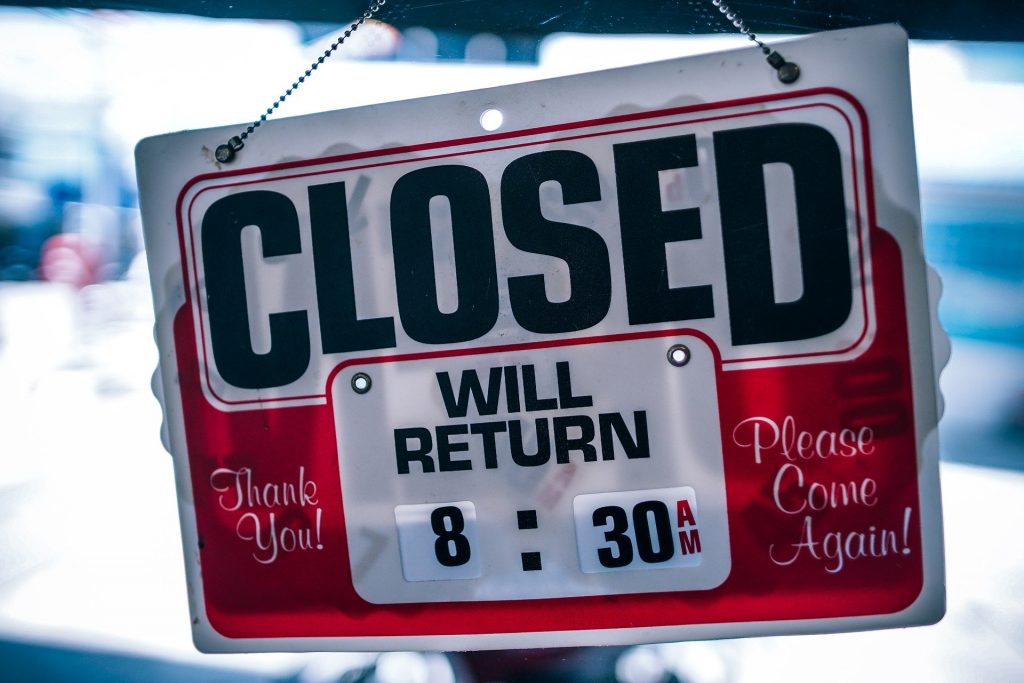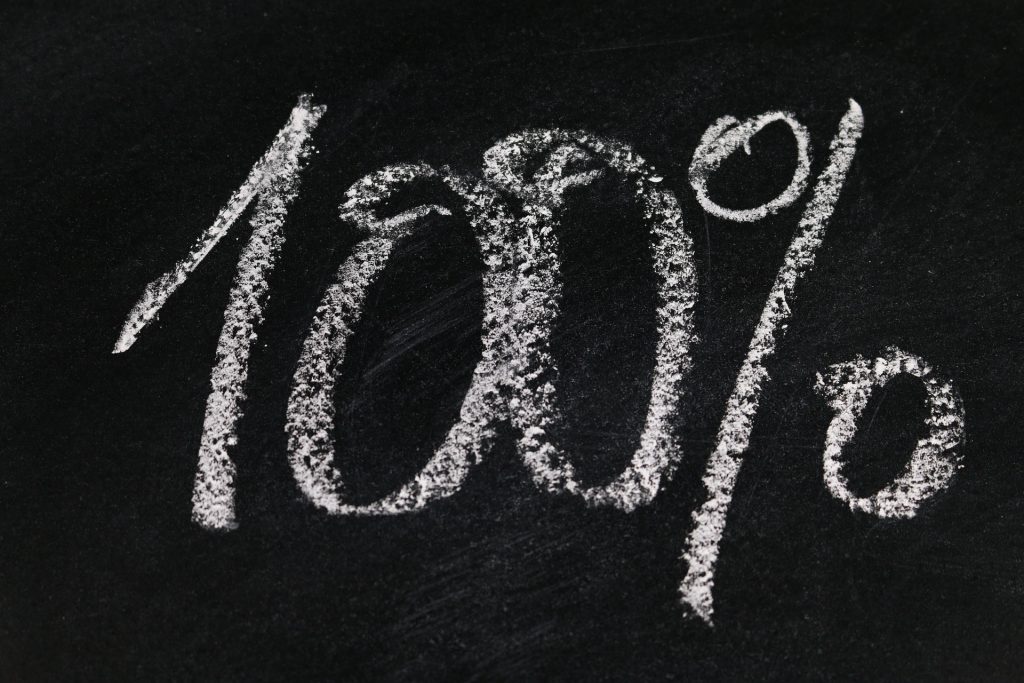Hang on, just hang on for a minute
I’ve got something to say
I’m not asking you to move on or forget it
But these are better days
To be wrong all along and admit is not amazing grace
But to be loved like a song you remember
Even when you’ve changed
Did I go on a tangent and lie through my teeth?
Did I cause you to stumble on your feet?
Did I bring shame on my family?
Did it show when I was weak?
Whatever you see, that wasn’t me
That wasn’t me, that wasn’t me
This is one of my favorite songs from one of my favorite artists (“That Wasn’t Me” by Brandi Carlile), especially since I’ve quit drinking. I first heard it from an AA group because it’s become something of a theme song for those of us grappling to understand why we behave in ways we can’t explain, especially when we’re using.
Apparently I’m not the only one.
There is this inexplicable phenomenon which occurs in many addicted people, where they behave in ways uncharacteristic of their “normal” behavior. By “normal”, I mean their character or personality when they’re uninfluenced or unaffected by drugs and alcohol.
And indeed, it hasn’t been until recently that I’ve personally been able to understand and explain it. So, this phenomenon has been almost as mysterious and inexplicable for me as it was for those watching.
I simply knew, however, that — even while drinking and subsequently lying about it, manipulating, being dishonest and hiding — in my heart of hearts, that wasn’t me.
Does realizing it change anything? No, it doesn’t. Does finally being able to quit drinking change any of it? No. Am I asking anyone to move on and forget it? No. But do I need to? Yes. And I have.
It’s truly a tough place to be.
The shame of behaving in ways contrary to my true nature though – especially when it hurt people I truly love – often caused me to drink just to live with myself, and so, as you can imagine, rarely did I like myself. Hard to like yourself – much less love yourself – when you don’t even trust yourself, and you do things you can’t explain or understand and hurt people all along the way.
I now understand and will explain this phenomenon, and again, even though it changes nothing from the past, it does help me to remind myself, especially when I have regret, which I do, still. (I’ve written in detail about this in a blog called “I Blame Alcohol”, and you can read it here).
When we’re addicted, we are physically and mentally addicted. That’s one point with which I agree with AA. Our bodies crave it, and our minds justify our actions in getting it; they go hand in hand. So, let me try to explain this.
Ingrained addiction is unconscious and nearly instinctual by nature.
Addiction happens in the older part of the brain where our unconscious instincts live. If it had conscious awareness, we never would have made it out of the trees. During evolution, when you have to react in nanoseconds to constant life/death situations, the last thing your brain would have you do is think. To think about it is to die; this part of the brain is all about reaction and survival. So, it’s good we have this part of the brain; it got us here.

Nor does this ancient brain have past or future awareness either; it doesn’t need it. Its only job is to get us to the next 30 seconds alive, so it doesn’t consider future possible consequences, nor remember past actions/events, no matter how shameful they were. This part of the brain isn’t into long-term gratification. And neither is the addicted, especially when they’re actively using. I certainly wasn’t.
So, that’s one problem.
We are at its mercy, and it is relentless.
But the real problem is that the part of the brain which does have future and past awareness – the Prefrontal Cortex – isn’t in control. Well, sometimes it is – enough so that we appear to be pretty “normal” in many circumstances — but with this drinking thing, it’s the older part of the brain that’s running the show. So, there’s that.
And this is an irrelevant side note, but I used to often be very frustrated because no one ever saw the hundreds of thousands of times I was able to resist the urge! They only saw when I wasn’t, and then it was so obviously public and embarrassing. No wonder we try to hide it.
Why could they never see how often and successfully I resisted? If only they could see how hard it was, and how strong I was, they might understand and respect me. But I was too ashamed of the need – which felt akin to survival, and I’m about to get to that. But my actions only highlighted my weakness. That’s just the way of it, I guess.
So remember, for that one transgression you see, it may have been preceded by hundreds of acts of tremendous will power that go unnoticed and unrecognized. Okay, so back to the brain.
But why do we do such dumb stuff?
The Prefrontal Cortex is also where decision-making, our individual personality, our morality, and our values live (among so many other things that make us who we are, it’s unfathomable; this is very simplified explanation.)
And to make matters worse, this part of the brain is negatively influenced by many factors including stress, drugs, and alcohol. Yeah, no joke! How fair is this?!

When we drink, use drugs, or are under extended or severe stress, we lose access to the Prefrontal Cortex. It goes offline, so to speak; dissolves; gone; out to lunch; closed for business – however you want to word it. That’s why, when we drink, our personalities change, we don’t make good decisions, and we do things that we wouldn’t normally do. Make sense?
And then we don’t hear from that logical part of our brain again until the next morning when the drunk wears off, or after the pills have already been lifted. And that’s when we realize what we did, often for the first time.
And trust me – that is a sobering and bleak personal moment indeed. That is the most incomprehensibly demoralizing moment of awareness one can ever have about oneself, and it should never be felt. It is void of anything good, barren of hope or optimism; I can’t find the words to explain that moment or how many times I felt it.
And the bitter irony? I did it to myself. How do you explain that? Again, there aren’t many words I can find to explain this feeling.
You feel like you are the addiction.
Hence, the “cunning, baffling, and powerful” nature of what we’re talking about. It is a part of you; you are it, and it is you. There is no separation. And if you’ve never experienced it, then you can’t possibly understand. While you’re still standing in front of the mirror reciting, “I love you”, we aren’t sure how to get out of bed without wanting to blow our brains out. Just saying.
The big problem is that the addicted brain has mis-assigned alcohol with waay more value than it deserves, because it assesses everything we experience by how it feels. Yes, how it feels. This older instinctual brain’s assessment system is simple and based on only two criteria: is it good or bad? Positive characteristics or negative ones? Two speeds, that’s it.
Keep in mind there wasn’t a great deal of variety in our environment way back then, but potentially lethal danger lurked everywhere. So, if it smelled, tasted, felt, sounded or looked okay or good, then the brain coded it – in a matter of nanoseconds and unconsciously — necessary for survival, and moved us toward it. How did it do that? By generating the urge to get it; again, and again, and again. Starting to make sense?
Feels good = survive; bad = dead.
Conversely, if it had negative or bad characteristics, it was coded detrimental to survival, and the brain would move us away from that particular thing or experience. And this assessment is still there and working in our skulls the same way it has for eons; hence our modern addiction problem.
Now if the experience/substance was really really good, what kind of rating, so to speak, do you think it got? And how does alcohol feel? To me, it was the best thing I’d ever felt!

Alcohol causes such unnaturally high spikes in “feel-good chemicals” that, over time, the brain moves it all the way to the top of the hierarchy of survival needs. It becomes more important than sex (mating to this ancient brain structure), self-defense (physical safety), and even food – at least temporarily. That’s the kind of power we’re talking about.
In the face of such bazaar behavior, “normal drinkers” will often incredulously ask, “To what extent will the addicted go for their drug of choice”? Well, think about it.
If we’ll gradually give up our homes, our families, our marriages, tons of money, our freedom, our bodies (sex), and even food – nourishment for God’s sake, do you think a little self-respect is going to matter? Especially in the moment of intense desire?
Do we behave like it’s a matter of survival?
I felt like it was, that’s all I know. I understand why that is now, but then? Not a chance. It felt like instinct. It felt like necessity. It felt like survival, at times.
And how great is our instinct to survive? As great as millions of years of biological imperative. So when it comes down to a decision to tell a little lie or snag a bottle of something when no one’s looking, do you think our now muddled morality would be much of a deterrent? It’s not.
And that is truly a terrible position to be in. Can you imagine? Try to; just for a second. This is an exercise in empathy. It was truly agonizing, confusing, baffling, terribly difficult, and no really good option, ya know?
“I’m not asking you to move on or forget it, but these are better days.”
Now, all this being said and explained, I’ll leave it to Brandi. The rest of the song goes like this:
When you’re lost you will toss every lucky coin you’ll ever trust
And you’ll hide from your god like he never turns his back on us
And you’ll fall all the way to the bottom and land on your own knife
And you’ll learn who you are even if it doesn’t take your life
But see, that’s the problem – when you’re addicted, you don’t really know who you are. In the throes of addiction, you’re one person; and after the terrible fact of the decision you had to make, you’re a different person.
And how many times do we have to land on our own knives? How many times do we have to be punished for something that we shouldn’t have had to experience in the first place? And who decides when we’ve redeemed ourselves enough to be trusted? I can tell you who decides that in my world. I do.
I live the price for my transgressions every day. I lost just about all that was good, including my self-respect, and I realize that it was at my own hand, so shame on me. That’s the hardest part to accept.
But yeah, “these are better days”, and it’s about damn time. So, if I’ve behaved like a POS for the first 50 years of my life, but now I know why and have turned it around, I figure I’ll spend the rest of my life – which hopefully will be another 30+ years (if heredity has anything to do with it, I should make it to my mid-80’s) – helping other alcoholics figure out this brain thing, I should be pretty damned redeemed; and fulfilled.
I Can Change
To end on an optimistic note, and because music inspires me, the song I’d like to make a theme for my site and my life’s work is by Lake Street Dive, and I encourage you to listen to it right now. It was written for me – and you – if you’re struggling with alcohol or addiction, and the title says it all.
Hate casts a long shadow
I know that I lie in it
And let it rule my mind from time to time
Escapin’ an old battle
That clings on like a vine to me
Whispers dirty lies in my ear. I know we didn’t start this fight
And I won’t let it rule my heart tonight
I can change
I can change
I can still change
I can still change
Tracin’ an old pattern
Drawing the lines from where I am and from where I wanna be
Forget that old adage
That history continues to keep us from the world we wanna see
I am scared that I won’t get it right
But fear won’t rule my heart tonight

I can change
I can change
I can still change
I can still change

Recent Comments